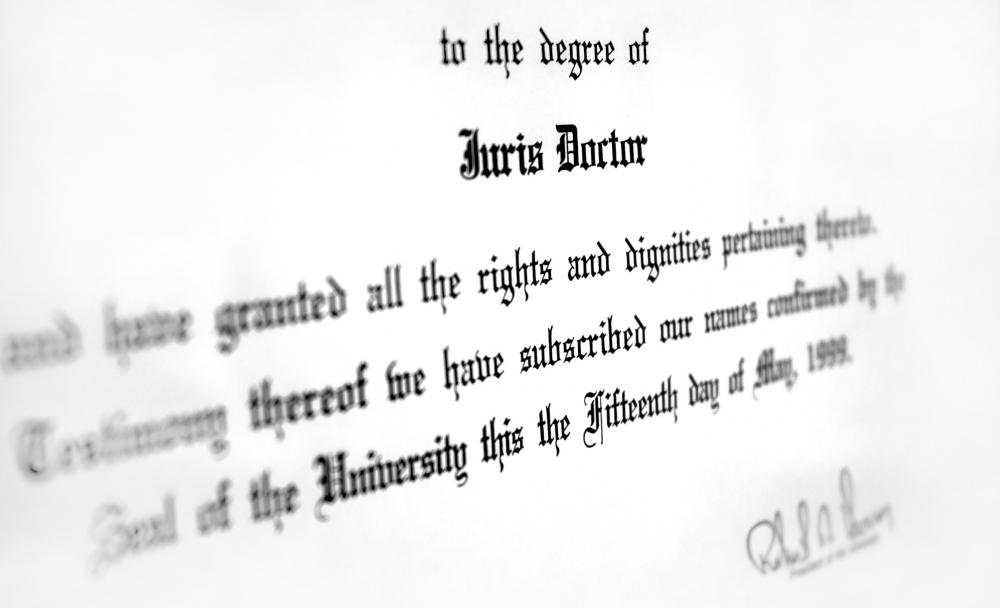At WiseGEEK, we're committed to delivering accurate, trustworthy information. Our expert-authored content is rigorously fact-checked and sourced from credible authorities. Discover how we uphold the highest standards in providing you with reliable knowledge.
How do I Become a Tax Lawyer?
Tax law is one of the most complicated legal specialties. Each country has its own taxation structure — often executed at local as well as national levels — involving complex statutes, regulations, and exemptions. A lawyer who specializes in tax needs to be good at numbers, highly adept at applying complex rules to often even more complex situations, and good at understanding the legal consequences of a whole array of actions. To become a tax lawyer, one must hone these skills while planning an educational course that includes law school and likely also graduate law work in tax.
The most basic requirement to become a tax lawyer is to obtain a law degree and a license to practice law. Each country handles legal education and licensing a little bit differently, but most of the time, law students enter law school after finishing a four-year undergraduate university degree. Law schools follow a fairly general curriculum of core courses supplemented by certain electives. Students do not typically specialize in any area of law, but usually have the freedom to seek out electives in fields of interest.

Most law schools have robust tax offerings, including courses on income tax, estate tax, and international tax. If your ultimate goal is to become a tax lawyer, it is a good idea to take as many tax classes as you can while in school. Attending a law school with a well-respected tax faculty can also help you become a tax lawyer by enhancing your marketability and career chances later on down the line.

Because of the complexities involved in the practice of tax law, many law firms expect or require that their lawyers will receive post-law school tax education and training. Most of the time, this comes in the form of a master of laws, or LL.M., degree. The LL.M. is one- to two-year program for lawyers that deals exclusively with the nuances of tax. It is within the LL.M. that a budding tax lawyer can truly specialize in certain aspects of tax law.
One can become a tax lawyer in a variety of settings. Many tax lawyers work within private firms, offering tax planning and tax management advice to clients. A lawyer in this type of job can be an estate tax lawyer, a financial management lawyer, and usually has training in wills and trusts as well as accounting. Many businesses also hire tax attorneys to manage internal tax policy questions, and to help streamline payroll tax, corporate tax exemptions, and other business tax obligations.
Another way to become a tax lawyer is to work for a government taxation authority. The tax codes of any country are expressed as laws, which makes lawyers the most able to influence their breadth, implementation, and drafting. The Internal Revenue Service, the United States’ taxation agency, for instance, employs thousands of tax lawyers in a variety of capacities. An IRS tax lawyer might help draft new tax regulations, or write memos explaining how existing regulations interact with each other. She might also assist the agency in prosecuting companies or individuals who have broken the tax laws.
Before embarking on your career, research schools and programs, talk to professionals in the field, and look for work in tax law while you are in school, if possible. Hands-on experience can supplement book learning and help you decide what sort of tax law you want to practice. Experience and professional references always look good to future employers, as well.
The field of tax law is broad, and almost always changing. There are many ways to practice tax law, and no set way to become a tax lawyer. One thing is certain, however: one who wants to become a tax lawyer can look forward to world where work is plentiful and consistently challenging.
AS FEATURED ON:
AS FEATURED ON:












Discuss this Article
Post your comments